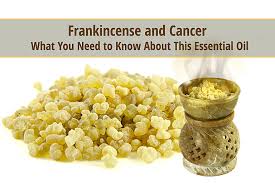
Breaking News
 FULL REPLAY: President Trump Delivers an Address to the Nation - 12/17/25
FULL REPLAY: President Trump Delivers an Address to the Nation - 12/17/25
 MELANIA, the film, exclusively in theaters worldwide on January 30th, 2026.
MELANIA, the film, exclusively in theaters worldwide on January 30th, 2026.
Top Tech News
 This tiny dev board is packed with features for ambitious makers
This tiny dev board is packed with features for ambitious makers
 Scientists Discover Gel to Regrow Tooth Enamel
Scientists Discover Gel to Regrow Tooth Enamel
 Vitamin C and Dandelion Root Killing Cancer Cells -- as Former CDC Director Calls for COVID-19...
Vitamin C and Dandelion Root Killing Cancer Cells -- as Former CDC Director Calls for COVID-19...
 Galactic Brain: US firm plans space-based data centers, power grid to challenge China
Galactic Brain: US firm plans space-based data centers, power grid to challenge China
 A microbial cleanup for glyphosate just earned a patent. Here's why that matters
A microbial cleanup for glyphosate just earned a patent. Here's why that matters
 Japan Breaks Internet Speed Record with 5 Million Times Faster Data Transfer
Japan Breaks Internet Speed Record with 5 Million Times Faster Data Transfer
 Advanced Propulsion Resources Part 1 of 2
Advanced Propulsion Resources Part 1 of 2
 PulsarFusion a forward-thinking UK aerospace company, is pushing the boundaries of space travel...
PulsarFusion a forward-thinking UK aerospace company, is pushing the boundaries of space travel...
 Dinky little laser box throws big-screen entertainment from inches away
Dinky little laser box throws big-screen entertainment from inches away
 'World's first' sodium-ion flashlight shines bright even at -40 ºF
'World's first' sodium-ion flashlight shines bright even at -40 ºF
Frankincense oil kills cancer cells while boosting the immune system, studies show

(NaturalNews) Frankincense is a powerful medicinal oil that can not only boost the immune system but also kill cancer cells, a number of studies have shown.
One of the most significant recent studies was conducted by researchers from the University of Leicester, England, in 2013. The researchers found that the naturally occurring frankincense compound acetyl-11-keto-beta-boswellic acid (AKBA) targeted and destroyed ovarian cancer cells. The findings were particularly significant because they showed that AKBA had this effect even in late-stage ovarian cancer patients, not just in laboratory trials performed on isolated cells.
"Frankincense is taken by many people with no known side effects," lead researcher Kamla Al-Salmani said. This finding has enormous potential to be taken to a clinical trial in the future and developed into an additional treatment for ovarian cancer."
Kills cancer and reduces radiation side effects
The Leicester findings build on a large and still growing body of evidence that frankincense and its compounds have powerful immune-boosting and cancer-fighting benefits.
A study published in BMC Complementary and Alternative Medicine in 2009, for example, found that the herbal form of frankincense triggered death in bladder cancer cells by activating several different cellular pathways. Another study, conducted by researchers from Nihon University in Tokyo and published in Biological and Pharmaceutical Bulletin, showed that several chemical components of frankincense were able to kill three separate human neuroblastoma cell lines. The same study also found that frankincense inhibited the growth of Epstein-Barr virus.
Neuroblastoma is a type of cancer that forms in nerve cells and primarily affects young children. Other studies have shown that frankincense and its components can kill cancers of the brain, breast, colon, pancreas, prostate and stomach.
Frankincense may also help mitigate the often-debilitating side effects of cancer treatment. One study, published in the journal Cancer in 2011, was performed on brain cancer patients experiencing cerebral edema (swelling) as a side effect of radiation therapy. The researchers found that 60 percent of participants given frankincense experienced a 75 percent reduction in cerebral swelling, a potent enough result for the authors to recommend frankincense as a potential alternative to steroids, the current favored treatment. Side effects of steroids can include headaches, blurred vision and migraines.
All-around immune booster
Frankincense's cancer-fighting benefits seem to come, in part, from its potent effects on the immune system. One study, conducted by researchers from Baylor University Medical Center, found that acts upon the expression of genes that help regulate the immune system, leading to cancer cell death. Another study, published in Phytotherapy Research, found that mice given frankincense exhibited increases in several key markers of immune function, primarily levels of white blood cells (lymphocytes) and anti-inflammatory activity.
Numerous studies have confirmed frankincense as a powerful anti-inflammatory. This, along with its other immune-boosting properties, may in part explain its usefulness in fighting infection and in treating autoimmune conditions such as asthma, rheumatoid arthritis and inflammatory bowel disease (IBD).
Frankincense can also be used to heal skin, including from acne and scarring, and can reduce anxiety levels.

 The Prime Directive is Evil
The Prime Directive is Evil
 Don't Worry About Bitcoin
Don't Worry About Bitcoin

